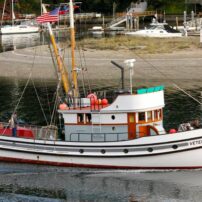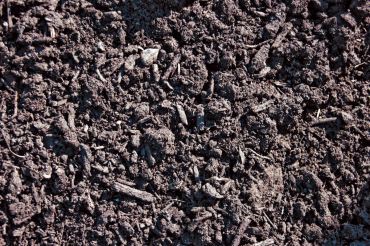
Late fall and winter are often good times to mulch as long as soils are not soggy and saturated. Just think of applying mulch as a way to warm yourself up on a much too chilly day.
But what kind of mulch works best? The answer is: It depends. Here are a few mulch examples, with photos, along with pros and cons, to help in your own decision making. Remember too, that spring is also a great time to apply mulches. If that’s your choice, then spend your indoor time this gardening season perusing the helpful information found at the links at the end of this article.
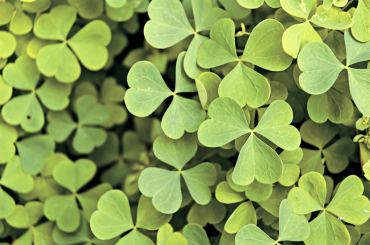
Green Manure
This is the common term used to describe cover crops. Cover crops are most commonly planted no later than mid to late September. Common crops are: clover, vetch, rye, fava beans.
Cover crops grow well in cooler temperatures and their purpose is to hold soil in place, reduce weed germination and be turned into the soil each spring to replenish nutrients and soil tilth. Other than vegetable beds, they can also be used in unplanted areas of a garden to keep weeds at bay until the area can be properly landscaped.
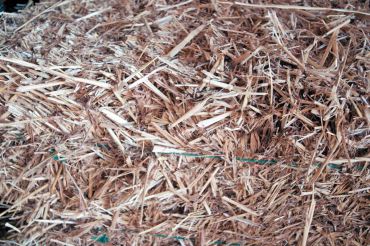
Straw
Straw has fewer weed seeds than hay. The material serves as a way to hold soil in place and restrict weeds; it can be tilled into the soil later as it decomposes. Straw mulch can be used in paths and to help prevent soil erosion on new construction sites.
Bark
This material comes in all sizes and colors. The choice is up to the gardener, based upon the desired look in the landscape. Bark mulch is used in both garden plantings and in paths. It breaks down into lovely organic composted soil over the years.
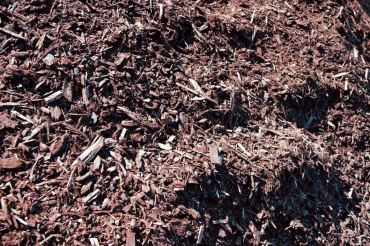
Bark lasts for three to 10 years before having to be reapplied. In landscaped gardens, when used as a mulch around plants, it’s best to keep the application at 2-3 inches deep, no deeper than that or plants will suffer. Make sure that the bark does not pile up or touch the woody trunks and stems of plants.
Bark mulch also serves as a “life zone” around trees, keeping mowers and weed whackers at bay.
Arborist Chips
This is a very course material available often for free or a reasonable cost. Call a local arborist company to find out if arborist chips are available in your area. They work well in paths or to hold soil in place while you decide what to do with a landscape. Some gardeners prefer the look of arborist chips, others do not.
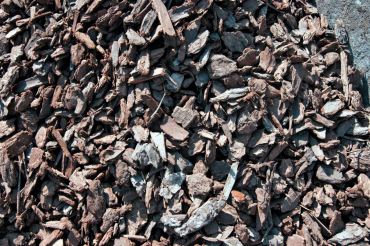
Compost
Compost will not keep weeds away but it will make them easier to pull up. Sometimes compost serves as a lovely new bedding material for weeds to germinate; just yank them out. Compost also works as a very mild fertilizer.
Check with the local supplier to learn the methods used to create the compost and ask for an ingredients list. Common types of compost found locally are Tagro, Cedar Grove, mushroom and worm compost.
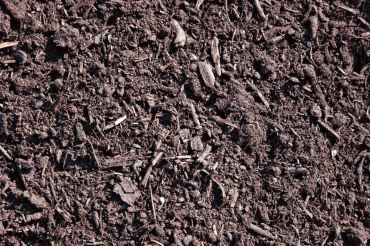
Manure
Some local gardeners swear by a mulch of composted manure for lush and lovely perennials. Keep in mind that manure applications need to be made in the spring and summer, not during the monsoon seasons.
Make sure the manure you receive has been well composted. Manure is also turned in to vegetable gardens in early spring. In this case, it becomes an amendment rather than mulch.
Grass and Leaves
These accessible materials have been used by some to suppress weeds but they do not serve very well as mulches. When using grass clippings as mulch, make sure the grass has not been treated with weed killers. When used as mulch, it’s best to let them dry and then chop them up thoroughly.
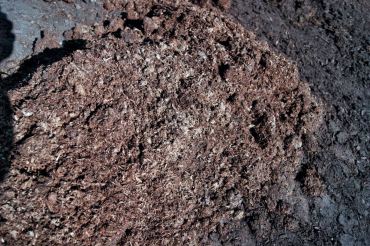
They’re helpful in bare garden beds once they’re tilled into the soil. Their best use is in making compost or sending to the yard-waste recycling centers, where they’ll be turned into commercially produced compost.
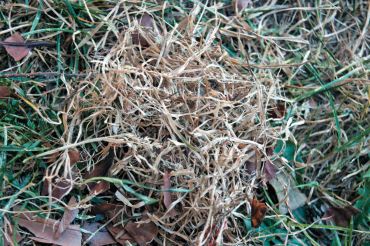
Rock
A few gardens in West Sound have rock mulches. One plant that seems to thrive with rock mulch is juniper tam. These plants do well with the reflected warmth provided by the rock.
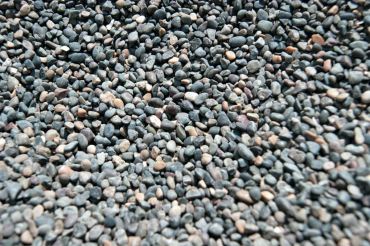
Rock garden plants also do well with rock mulch. Size and texture of rock mulch vary according to the use. Rock mulch is best used as path material.
This is only a snippet of the mulches found locally. Consult the side bar below for a more complete analysis of various mulches to choose from and why. Also call the WSU Kitsap Extension Office 360.337-7157, ext. 0 if you have individual questions that need to be addressed.
Resources
Even though Clemson Extension is in South Carolina, the information provided on this site is very complete and thorough. Use it to decide which mulch will work best for your situation. Only one or two of the materials would not work in West Sound.
This is a copy (pdf) of an article on mulches that appeared in Master Gardener Magazine in 2007 and thoroughly discusses pros and cons of using wood mulch; the pros have it, mulches are a good thing when used properly.
This article on mulches by Dr. Chalker-Scott in Journal of Environmental Horticulture cites scientific studies on mulches and the many pros of using them.










